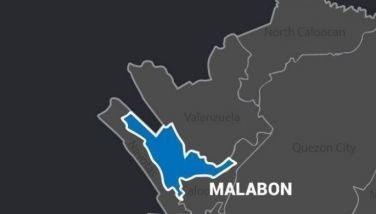Small fishers now catch only 5 kilos per day
February 22, 2006 | 12:00am
SAN FERNANDO, Pampanga — The fish catch of some 12 million small fishermen nationwide has been reduced from an average of some 25 to 30 kilos in three hours in the 1970s to only about five kilos per day due to illegal fishing mainly by fishing companies.
In an interview with The STAR, Pablo Rosales, national president of the Progresibong Alyansa ng Mangingisda (Pangisda), said this was reflected in their study based on reports of fishermen’s groups from various parts of the country where illegal fishing thrives.
"The harvests vary depending on the situation in one area, but on the average, the small fishermen who rely on our natural resources have significantly dwindled," he said.
With income from the sea no longer capable of providing their families with their basic needs, most of Pangisda’s members have been pushed to alternatives means of livelihood, including prostitution, Rosales said.
"Many members of fishing families are forced to work as domestic helpers in Metro Manila or other urban centers, while the menfolk do construction work. At times, some members are pushed to prostitution," he said.
According to Rosales, small fishermen are also forced to use dynamite and cyanide in fishing in order to survive.
Rosales said the catch of small fishermen has declined over the years mainly due to the encroachment of big commercial fishers into municipal waters and the sprouting of fishpens and fishcages.
"There are laws against this but the government has not really enforced them," he said.
Rosales cited the case of the Lingayen Gulf in Pangasinan and La Union where fishpens and fishcages set up by capitalists have dominated coastal waters and have been noted to trigger fishkills yearly.
"What happens is that the artificial feeds used in the fishpens and fishcages somehow tend to accumulate in the seabed. During summer, the heat causes a chemical reaction in the accumulated materials that leads to fishkills," he cited studies as saying.
Rosales said Pangisda members all over Luzon are airing their grievances on these concerns in a rally today at the People Power monument along EDSA in Quezon City.
The Kilusan Para sa Pambansang Demokratiko (KPD) said about 20,000 to 50,000 people from Pangisda and other "broad alliances" of militant groups across Luzon are expected to join the protest rally timed for the commemoration of the 1986 People Power Revolt.
"The government does not have to look for other jobs for the 12 million fishermen throughout the country if only it enforces laws that will again return fishes to our seas," Rosales said.
He said hundreds of fishermen from Northern and Central Luzon are converging in this city at 9 a.m. and then hold a caravan to the People Power monument.
In an interview with The STAR, Pablo Rosales, national president of the Progresibong Alyansa ng Mangingisda (Pangisda), said this was reflected in their study based on reports of fishermen’s groups from various parts of the country where illegal fishing thrives.
"The harvests vary depending on the situation in one area, but on the average, the small fishermen who rely on our natural resources have significantly dwindled," he said.
With income from the sea no longer capable of providing their families with their basic needs, most of Pangisda’s members have been pushed to alternatives means of livelihood, including prostitution, Rosales said.
"Many members of fishing families are forced to work as domestic helpers in Metro Manila or other urban centers, while the menfolk do construction work. At times, some members are pushed to prostitution," he said.
According to Rosales, small fishermen are also forced to use dynamite and cyanide in fishing in order to survive.
Rosales said the catch of small fishermen has declined over the years mainly due to the encroachment of big commercial fishers into municipal waters and the sprouting of fishpens and fishcages.
"There are laws against this but the government has not really enforced them," he said.
Rosales cited the case of the Lingayen Gulf in Pangasinan and La Union where fishpens and fishcages set up by capitalists have dominated coastal waters and have been noted to trigger fishkills yearly.
"What happens is that the artificial feeds used in the fishpens and fishcages somehow tend to accumulate in the seabed. During summer, the heat causes a chemical reaction in the accumulated materials that leads to fishkills," he cited studies as saying.
Rosales said Pangisda members all over Luzon are airing their grievances on these concerns in a rally today at the People Power monument along EDSA in Quezon City.
The Kilusan Para sa Pambansang Demokratiko (KPD) said about 20,000 to 50,000 people from Pangisda and other "broad alliances" of militant groups across Luzon are expected to join the protest rally timed for the commemoration of the 1986 People Power Revolt.
"The government does not have to look for other jobs for the 12 million fishermen throughout the country if only it enforces laws that will again return fishes to our seas," Rosales said.
He said hundreds of fishermen from Northern and Central Luzon are converging in this city at 9 a.m. and then hold a caravan to the People Power monument.
BrandSpace Articles
<
>
- Latest
- Trending
Trending
Latest
Trending
Latest
Recommended































